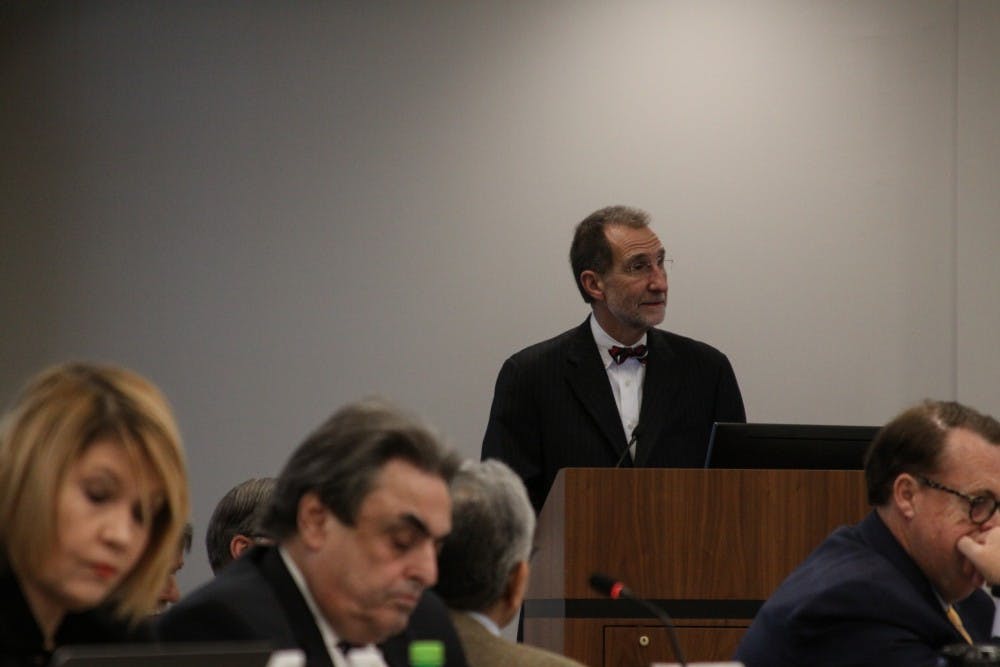The UNC-system Board of Governors gathered in the Center for School Leadership Development on Friday morning for their regular January meeting. At the meeting, several board members presented updates regarding the work of various committees and community members continued to discuss Silent Sam during the public comments session.
Community members continued to focus on Silent Sam during the public comments session
The January BOG meeting came only 10 days after the Board accepted Chancellor Carol Folt’s resignation and moved her departure date to the end of this month. Several community members spoke to a group of BOG members during the public comments session before the full board meeting.
Many of those who spoke during the public comments session focused their attention on what the University’s next steps should be after Folt’s removal of the Confederate Silent Sam statue.
“I certainly do not think the Board of Governors should resurrect Silent Sam in its original location; I think they should give it back to the Daughters of the Confederacy,” said Orange County resident and activist Heather Redding. “(The Board members) know that Silent Sam is a lightning rod for violence and white supremacy, and if they resurrect it, it’s going to come down again.”
James Ward, another community member who said he was a member of the Sons of Confederate Veterans, said he believes the actions of UNC’s administration were in “direct violation of state law,” and he felt the removal of the statue “whitewashes history.”
“The statue itself doesn’t create violence,” Ward said. “It’s been there, a very benign presence for a hundred years or better. People reacted to it and then created violence themselves. So, I think the whole notion that it had to be removed because it was a point of violence is bogus.”
UNC graduate student Lindsay Ayling challenged board member W. Marty Kotis on comments he made in December, in which he referred to student actions as terrorism.
“You are operating under the assumption that those who protest white supremacy are inherently criminal, and I cannot stress enough how dangerous that is,” Ayling said. “If you look at anti-racist protesters and see a terrorist insurgency to be crushed, you have no place in public education and you should resign your position effective immediately.”




